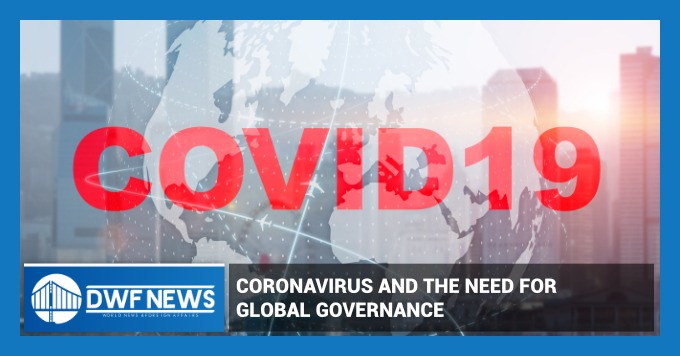Do we really have to wait for things to get worse before we act? Or will petty nationalism once again get in the way to do what is reasonable for the sake of humans and humanity?
Written By Mark Coeckelbergh
Professor | University of Vienna
May 13, 2020
Article originally published by Democracy Without Borders
As our lives and our societies are disrupted by the COVID-19 (Coronavirus) crisis, some weaknesses of our political systems and existing ways of organizing our societies are glaringly exposed. Consider for example the lack of universal healthcare in some countries, which now becomes very problematic, or the vulnerabilities created by the huge amount of air travel in the service of economic globalization. This situation is sad but at the same time also raises the hope for change: maybe we learn from this. Maybe this is the beginning of a transformation. Maybe we should take this as an opportunity to change things. The issue I want to address here concerns the lack of effective cooperation and coordination at a global level, or stronger: the lack of adequate global governance and the political institutions that can do this. It has become clear that faced with a pandemic of global proportions, it is highly ineffective and dangerous to leave policy to nation states. Viruses know no borders, and even if there is an understandable reaction of closing borders and retreating into one’s own territory, it does not make sense if only some countries do this and others don’t – or react much later, too late.
In the light of human rights and other universal principles and values, it also seems pertinently unfair that some citizens receive better protections than others, just because they happen to live in a country with a different policy (e.g. a policy that goes for “herd immunity”). As a matter of justice, the right thing to do would be to coordinate crisis response and, more generally, health care policies. If this was just a one-off issue and one that is only about health, we could leave at this: a call for a temporary global coordination in the face of COVID-19. Perhaps this problem could be solved by having an ad hoc supranational action enabled by existing international institutions, something which is unfortunately also lacking today but which one can at least hope for within the boundaries of the present setup. (Maybe next time, after already thousands of people died?)# . . .
What is World Federalism?
World Federal Government (WFG)
Original Publisher
Democracy Without BordersMark Coeckelbergh is Professor of Media and Technology at the University of Vienna. He is an expert in ethics of AI and ethics of robotics.
Related Articles
LIST of Articles DWF NEWS 5/28/25
Children, Civilians Burned Alive as Israeli Warplanes Target School, Home in Gaza Palestine Chronicle staff 'Can't Remain Silent' on Jewish Atrocities: Malaysian Foreign Minister Says at ASEAN Foreign Ministers' Meeting Aamir Latif Anadolu Agency ...
LIST of Articles for DWF NEWS 5/14/25
Should "Israel" Be Declared A Terrorist Entity? Kevin Barrett Israel Is Spiraling Ori Goldberg The Nation 'Our Position on Palestine Is Not Fringe' Janine Jackson FAIR Latecomers starting to join PEOPLE OF CONSCIENCE Multiple Western Press Outlets Have...
List of Articles for DWF NEWS 4/30/25
PEOPLE OF CONSCIENCE absent among WASP & Zionist elites Imperial Cowardice: Gaza & the Moral Collapse of the American Elite Mohamed El Mokhtar The Palestine Chronicle Where is the Arab Street? Asad Abukhalil Consortium News Gaza exposes the rot of...
Solving Global Problems
We can work together to make the world better

